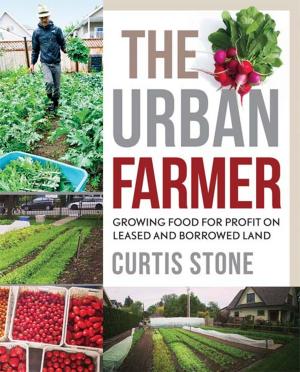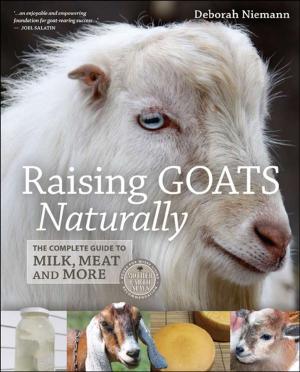| Author: | Andrés R. Edwards | ISBN: | 9781550923254 |
| Publisher: | New Society Publishers | Publication: | June 1, 2005 |
| Imprint: | Language: | English |
| Author: | Andrés R. Edwards |
| ISBN: | 9781550923254 |
| Publisher: | New Society Publishers |
| Publication: | June 1, 2005 |
| Imprint: | |
| Language: | English |
Sustainability has become a buzzword in the last decade, but its full meaning is complex, emerging from a range of different sectors. In practice, it has become the springboard for millions of individuals throughout the world who are forging the fastest and most profound social transformation of our time - the Sustainability Revolution.The Sustainability Revolution paints a picture of this largely unrecognized phenomenon from the point of view of five major sectors of society: * Community (government and international institutions) * Commerce (business) * Natural Resources (forestry, farming, fisheries, etc.) * Ecological Design (architecture, technology) * Biosphere (conservation, biodiversity, etc.).The book analyses sustainability as defined by each of these sectors in terms of the principles, declarations and intentions that have emerged from conferences and publications, and which serve as guidelines for policy decisions and future activities. Common themes are then explored, including: * an emphasis on stewardship * the need for economic restructuring promoting no waste and equitable distribution * an understanding and respect for the principles of nature * the restoration of life forms, and * an intergenerational perspective on solutions.Concluding that these themes in turn represent a new set of values that define this paradigm shift, The Sustainability Revolution describes innovative sustainable projects and policies in Colombia, Brazil, India and the Netherlands and examines future trends. Complete with a useful resources list, this is the first book of its kind and will appeal to business and government policy makers, academics, and all interested in sustainability.
Sustainability has become a buzzword in the last decade, but its full meaning is complex, emerging from a range of different sectors. In practice, it has become the springboard for millions of individuals throughout the world who are forging the fastest and most profound social transformation of our time - the Sustainability Revolution.The Sustainability Revolution paints a picture of this largely unrecognized phenomenon from the point of view of five major sectors of society: * Community (government and international institutions) * Commerce (business) * Natural Resources (forestry, farming, fisheries, etc.) * Ecological Design (architecture, technology) * Biosphere (conservation, biodiversity, etc.).The book analyses sustainability as defined by each of these sectors in terms of the principles, declarations and intentions that have emerged from conferences and publications, and which serve as guidelines for policy decisions and future activities. Common themes are then explored, including: * an emphasis on stewardship * the need for economic restructuring promoting no waste and equitable distribution * an understanding and respect for the principles of nature * the restoration of life forms, and * an intergenerational perspective on solutions.Concluding that these themes in turn represent a new set of values that define this paradigm shift, The Sustainability Revolution describes innovative sustainable projects and policies in Colombia, Brazil, India and the Netherlands and examines future trends. Complete with a useful resources list, this is the first book of its kind and will appeal to business and government policy makers, academics, and all interested in sustainability.















